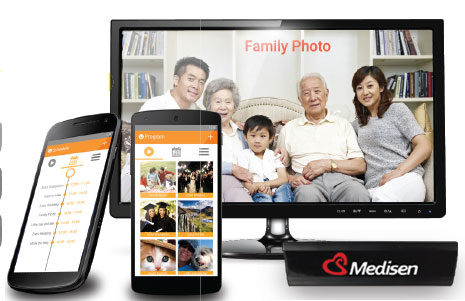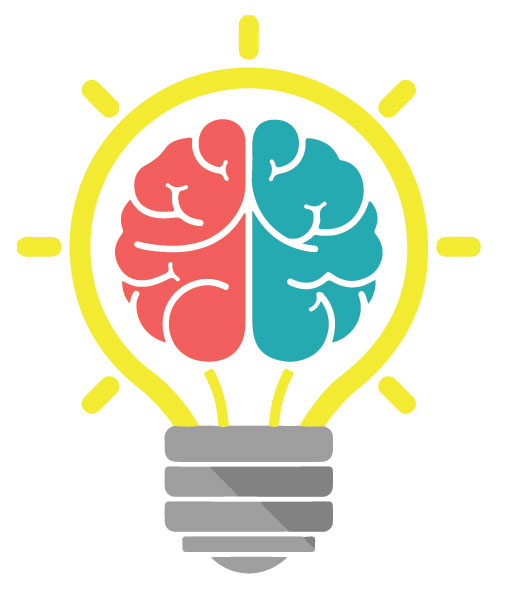Memory games
Updated: 2015-01-19 10:06
By Luo Weiteng(HK Edition)
|
|||||||||
A new idea is helping cyber-shy seniors connect with family members and may even help dementia sufferers and caregivers cope better. Luo Weiteng takes a closer look.
In today's digital world, families living under the same roof could in fact be living in two different worlds, with tech-savvy parents and kids immersed in the attractions of the cyber world while leaving grandparents, lacking enough online presence, feeling isolated and lost in the lonely real world.
Helping boost the numbers of wired seniors thus seems a good idea. However, it involves a tricky question: What if many of the older generation refuse to climb aboard the digital age Noah's Ark?
Joe Wong Chi-yin found his mother was one such confirmed outsider to the digital natives' camp when she could not be bothered to learn how to use an iPad.
Wong, the 33-year-old chief executive of Medisen, a medical solutions and devices design startup, bought his mother the latest iPad three years ago.
But the widely sought-after high-tech gadget failed to appeal to her. After a couple of days, she put it aside and picked up the TV remote again.
After speaking with nurses from the Hong Kong Institute of Vocational Education, Wong came to realize his mother was not alone in feeling this way. The vast majority of elderly in care homes still rely heavily on television to keep abreast of the times, despite some having access to high-tech platforms.
Bridging the gap
That brought home to him the urgent need to bridge this generation gap in technology.
The solution he devised is a custom-made television channel enabling content uploaded on children's social media platforms to appear on the TV screens of elderly parents.
The invention - dubbed the Senior Channel System - features an app installed in the mobile platforms of the children concerned and a special set-top box connected to the TV screen.
The children can use the app to select what to present on their parents' TV screens and when. And at the press of a channel button, elderly parents can sit down and enjoy what is going on with their children.
The innovative project helped Medisen get selected for the incubation program at Hong Kong Science and Technology Parks Corporation and win a gold medal in the electronics division last April at the 42nd International Exhibition of Inventions in Geneva, an annual competition that drew 726 entries from 45 countries in 2014.
The first generation of the product, priced at HK$1,500 to HK$2,000, is undergoing final trials and will hit the market in the first quarter in Hong Kong and Foshan, Guangdong province, according to Wong.
Wong said he would be more than happy if his project helps elderly empty nesters and seniors on the wrong side of the digital divide communicate better with their families.
"However, this invention can never replace the actual presence of loved ones," emphasized Wong. "It is by no means a valid reason for children to cut down on quality time with elderly parents."
Although the product is highly expected to aid elderly parents - whose failing eyesight and not-so-nimble fingers may prevent them from being active users of smartphones and computers - keep up with the latest happenings in their families, what Wong really wants to do is help aged people suffering from dementia.
Unlike cancer, dementia is usually viewed as a done deal. Looking after parents with dementia involves balancing tears and laughter, acceptance and despair, and often exhaustion, for caregivers.
As the greatest health challenge in the 21st century, a new case of dementia is diagnosed every four seconds in the world, according to the World Health Organization.
Statistics from the Department of Health show that among those aged over 85 in Hong Kong, one in three have dementia, with the prevalence of the condition in residents aged 60 or above at 103,433 in 2009. This is estimated to increase to 332,688 by 2039.
Face-detection function, a new feature of the second generation of the Senior Channel System, is part of Medisen's efforts to prepare for this "dementia epidemic".
With a set-top box connected to the TV screen, slight facial expressions of any user can be captured and recorded as the content is displayed.
"As elders suffering from dementia may not be good at expressing themselves, the system can help work out what is best to post on the TV channel," explained Wong.
"By collecting images and content, and examining which ones dementia patients best respond to, we can further establish a database with the potential to help medical research."
Based on the database, the Senior Channel System can work well with reminiscence therapy, cognitive training, music and exercise therapy for dementia patients, said Wong, adding that a comprehensive data analysis report can be sent to caregivers on a regular basis.
And the third generation of the product will feature on the "eHealthyNet" app, offering functions such as all-round health monitoring and analysis.
Giving back
Wong, who calls himself "100-percent Hongkong citizen", said he really hopes to do something for his home city and has never thought of taking his startup anywhere else.
Encouraged by Gwen Kao Wong May-wan, wife of Nobel physics laureate and Alzheimer's sufferer Charles Kao Kuen, 81, he hopes Medisen would join hands with research institutions for dementia treatment in the near future.
"Part of the first generation of our product will be put up for sale while the rest, I hope, can be given to hospitals and elderly centers for research purpose," Wong said.
Having heard loads of complaints about the city's less-than-ideal environment for tech-startups and its limited pool of new talents, Wong pointed out it is merely "a mentality of half-empty versus half-full".
"Problems exist yet the hardest times have passed," said Wong.
"My entrepreneur friends and I all find things are improving, with new blood willing to enter our industry and the social mindset changing about the tech industry being poorly paid with uncertain job prospects.
"With the 'glass half full', I do believe things will get better and better," Wong signed off.
Contact the writer at sophia@chinadailyhk.com



|
Joe Wong Chi-yin (center) poses with his gold medal and citation at the International Exhibition of Inventions in Geneva. provided to China Daily |
|
HK Science and Technology Parks Corp CEO Allen Ma Kam-sing analyzes the mega-trends of a revolution where gadgets large and small, not make-believe any more, are changing our society and bringing great opportunities for entrepreneurs and businesses. provided to China Daily |

(HK Edition 01/19/2015 page10)

